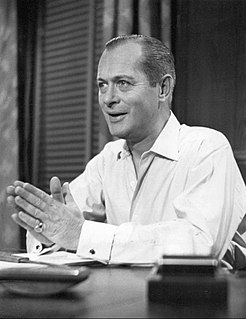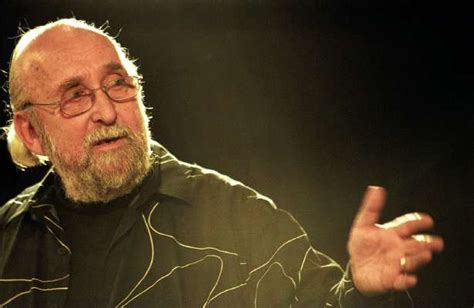Top 17 Semiotics Quotes & Sayings
Explore popular Semiotics quotes.
Last updated on April 14, 2025.
Semiotics is really interested in the questions like, what keeps you watching something, what keeps you - you know, what keeps you listening to a story on the radio? Like, what keeps you turning the pages in a book? What's the pleasure of it that's moving you forward, that's pulling you in and grabbing you and pulling you forward?
I don't like that whole "art should challenge you" thing. Because I don't feel like art actually does challenge you. I was a semiotics major at Brown, and there's this idea that stories are better, books are better, and movies are better if they cocked you off your axis and you were completely disoriented and you'd really have to rethink everything.
I am really interested in who owns ideas of religion. What if I say I'm a libertarian, socialist, Occupy-supporting, anti-war, Christian? Is that a controversial idea? I don't see anything really in the original semiotics of Christianity, in the specific parable of the radical socialist Jew from Galilee who becomes the hero figure in the Homeric-word-of-mouth-gossip-novel that becomes the Bible that should make that a paradox.
One of the things I learned as a young semiotics nerd was that if you have plot moving forward, no matter how banal the facts of it, simply the fact that the plot is rolling forward makes you wonder what's going to happen next, which creates suspense. So you can control peoples' attention simply by having things move forward in a story.
Most of my formal choices are a combination of everything I learned about form - semiotics, linguistics, and the history of style experimentations tethered to literary movements (formalism, deconstruction, modernism, and postmodernism), and the basic principal of breaking every rule I ever learned from a patriarchal writing tradition that never included my body or experience, and thus has nothing to offer me in terms of representation.
Graphic Design, which fulfills aesthetic needs, complies with the laws of form and exigencies of two-dimensional space; which speaks in semiotics, sans-serifs, and geometrics; which abstracts, transforms, translates, rotates, dilates, repeats, mirrors, groups, and regroups, is not good design if it is irrelevant.
One of the reasons I love language is that concerning semiotics, language is an arbitrary sign system, which means the signs within it are free-floating, but we put them in a certain order to get them to have meaning for us. If we left them alone, they'd be like water, like the ocean. It would be just this vast field of free-floating matter or signs, so in this way, I think language and water have much in common. It's only us bringing grammar and syntax and diction and the human need for meaning that orders language, hierarchizes it.








